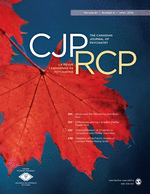 The most recent study published on the use of antipsychotics, such as Risperdal, Zyprexa and Seroquel, in children with ADHD has researchers concerned that there may be an over-prescription problem. The study published January 19, 2017 in The Canadian Journal of Psychiatry shows the same dramatic increase in use of antipsychotics prescribed off-label in children with ADHD, ages 1 – 24, as a previous study conducted in the U.S. and published in JAMA Psychiatry, July 2015. Additionally, a May 2016 U.S. Center for Disease Control and Prevention (CDC) Vital Signs report suggests use of medication for ADHD is over-prescribed overall and the first-line of treatment, parent training and therapy, is often skipped.
The most recent study published on the use of antipsychotics, such as Risperdal, Zyprexa and Seroquel, in children with ADHD has researchers concerned that there may be an over-prescription problem. The study published January 19, 2017 in The Canadian Journal of Psychiatry shows the same dramatic increase in use of antipsychotics prescribed off-label in children with ADHD, ages 1 – 24, as a previous study conducted in the U.S. and published in JAMA Psychiatry, July 2015. Additionally, a May 2016 U.S. Center for Disease Control and Prevention (CDC) Vital Signs report suggests use of medication for ADHD is over-prescribed overall and the first-line of treatment, parent training and therapy, is often skipped.
The Canadian study showed nearly 12% of all children with ADHD were prescribed antipsychotics, while 28% of those did not have any mental health diagnosis. Risperdal was the most frequently prescribe medication in this group. Use of antipsychotics, especially in children, is increasing despite the growing concern that the risks of adolescents using antipsychotics are likely greater than the benefits. Side effects include weight gain, dyslipidemia, extrapyramidal side effects, and gynecomastia– a painful growth of female-like breast in boys and young men.
“Given the significant risk of antipsychotics in children, we hope that all alternatives are considered before they are prescribed, although there are cases when they are needed,” the researcher said.
